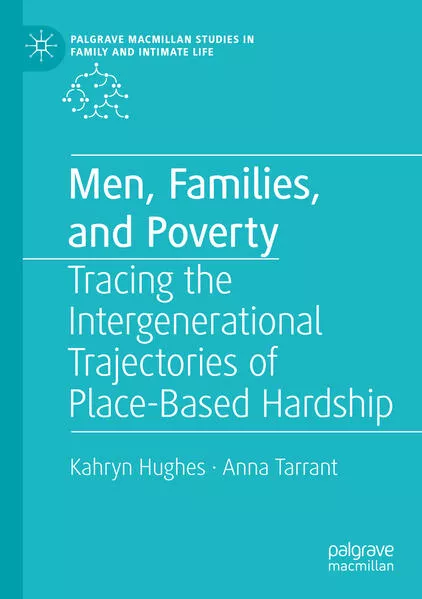
- Publikationen ca: 3
- Fragen & Antworten
Kahryn Hughes
Kahryn Hughes is Associate Professor of Sociology at the University of Leeds, UK. She is also Director of the Timescapes Archive, Editor-in-Chief of Sociological Research Online, and Senior Fellow of the National Centre for Research Methods, UK. She is internationally recognised for innovation in methods of Qualitative Secondary Analysis. Her substantive interests include intergenerational poverty and addiction.
Anna Tarrant is Professor of Sociology at the University of Lincoln, UK. She is also a UK Research and Innovation Future Leaders Fellow, leading a study called “Following Young Fathers Further.” Her work examines men’s family participation in low-income families. Her previous books include Fathering and Poverty (Policy Press, 2021).
Men, Families, and Poverty
This book develops a new sociology of the intergenerational and longitudinal dynamics of men’s family participation in relation to their trajectories through poverty. By addressing the ostensible absence of men from low-income families in existing literature and policy, the authors interrogate the interconnectedness of poverty, family, and place while paying explicit attention to the trajectories of men through and across low-income families and localities.
Men, Families, and Poverty
This book develops a new sociology of the intergenerational and longitudinal dynamics of men’s family participation in relation to their trajectories through poverty. By addressing the ostensible absence of men from low-income families in existing literature and policy, the authors interrogate the interconnectedness of poverty, family, and place while paying explicit attention to the trajectories of men through and across low-income families and localities.
Men, Families, and Poverty
This book develops a new sociology of the intergenerational and longitudinal dynamics of men’s family participation in relation to their trajectories through poverty. By addressing the ostensible absence of men from low-income families in existing literature and policy, the authors interrogate the interconnectedness of poverty, family, and place while paying explicit attention to the trajectories of men through and across low-income families and localities.


